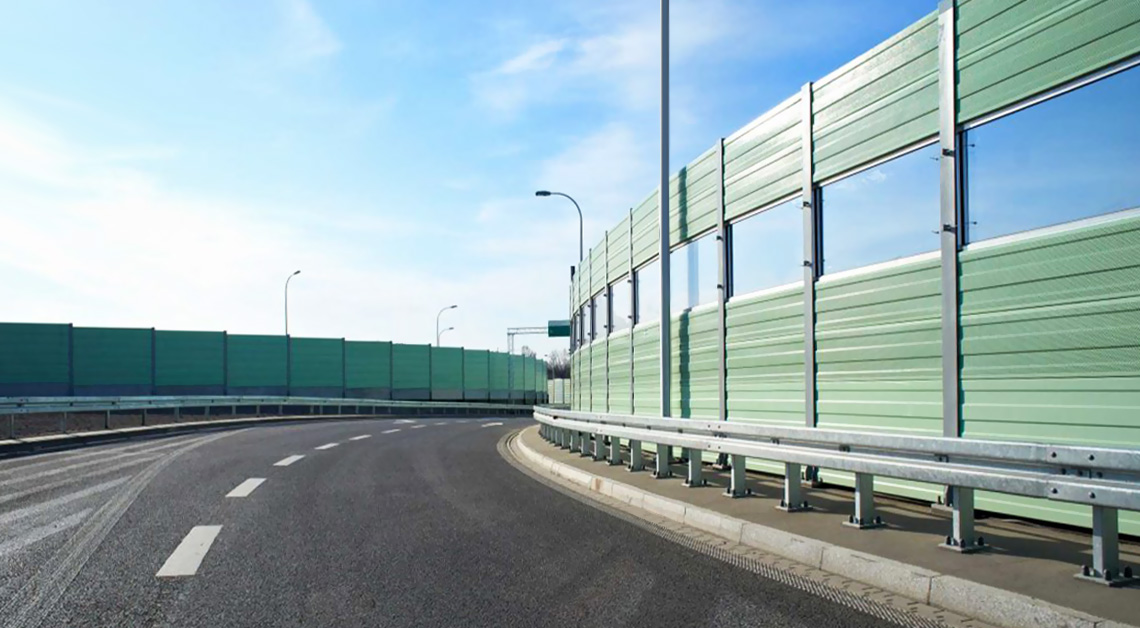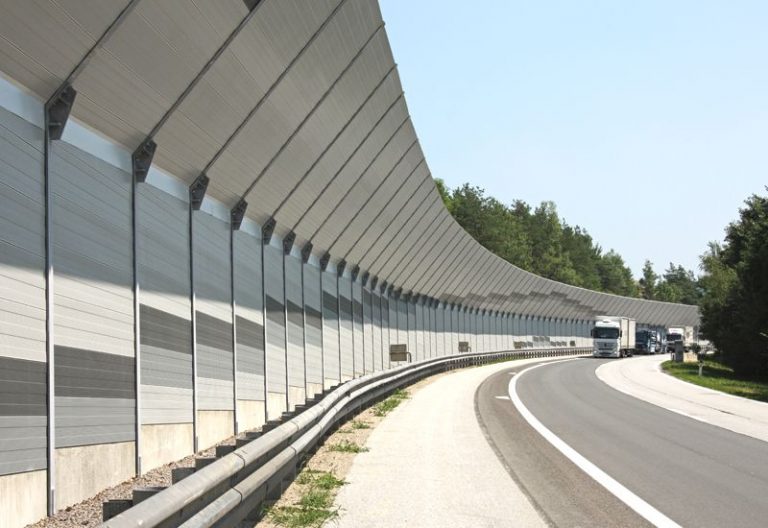Reasons Noise Barriers Help Improve Traffic Safety
In today’s fast-paced world, traffic safety is a pressing concern. With the number of vehicles on the road increasing each day, it’s important for authorities to take proactive measures to ensure the safety of drivers, pedestrians, and other road users. One effective approach is installing noise barriers along highways, freeways, and major roads. These barriers are designed to block or absorb sound waves from traffic, reducing the level of noise pollution and making the roads quieter. However, noise barriers are not just beneficial for reducing noise levels; they also play a crucial role in improving traffic safety.
-
Decreases driver distractions and fatigue.
One of the key reasons why noise barriers are an effective way to improve traffic safety is that they can significantly reduce driver distractions and fatigue. When drivers are exposed to high levels of noise pollution for prolonged periods of time, it can lead to decreased concentration and increased fatigue, which in turn can increase the risk of accidents on the road. Noise barriers help to mitigate this risk by reducing the amount of traffic noise that reaches drivers, thereby creating a more peaceful and less distracting driving environment.
In addition, by reducing driver fatigue, noise barriers can help to prevent accidents caused by drowsy driving, which is a significant safety concern on highways and other busy roads. Overall, noise barriers are an important tool for improving traffic safety and reducing the risk of accidents on our roads and highways.
-
Reduces noise pollution in communities.
One of the primary reasons why noise barriers help improve traffic safety is because they reduce noise pollution in communities. Excessive noise can have detrimental effects on the well-being of individuals living close to major roads or highways. The constant exposure to high levels of noise can cause hearing damage, stress, and sleep disturbances, which can lead to a host of other health problems.
Noise barriers help mitigate the impact of traffic noise by blocking the sound waves from reaching the nearby homes and businesses. This not only creates a more peaceful living environment for residents but also enhances their safety by reducing noise-related distractions that can cause accidents on the road. By reducing noise pollution, noise barriers can significantly improve the quality of life for people living near busy roads and highways.
-
Prevents accidents from noise-induced stress.
One of the critical reasons why noise barriers help improve traffic safety is that they prevent accidents from noise-induced stress. High traffic noise can cause stress, leading to driver fatigue and distraction, which can increase the risk of accidents. Studies have shown that excessive noise can lead to poor concentration, impaired hearing, and increased heart rate, making it challenging for drivers to react to sudden changes in traffic. Noise barriers act as sound absorbers, reducing noise levels and creating a safer driving environment. They provide a barrier between the road and the surrounding areas, preventing noise from reaching nearby residents and reducing stress levels for both drivers and pedestrians. Ultimately, noise barriers play a vital role in promoting road safety by reducing the likelihood of accidents caused by noise-induced stress.
-
Provides a visual barrier for drivers.
One of the reasons why noise barriers help improve traffic safety is that they provide a visual barrier for drivers. When approaching a noise barrier, drivers can use it as a reference point for their position on the road. This can be especially important in low visibility conditions such as heavy rain or fog. The visual barrier created by noise barriers can also help prevent drivers from being distracted by outside stimuli, such as billboards or other vehicles. By reducing distractions and improving visibility, noise barriers can help drivers stay focused on the road and avoid accidents.
-
Enhances driver communication and awareness.
Noise barriers are an effective means of reducing noise pollution from traffic and improving quality of life for communities living near highways. However, noise barriers also offer several benefits for traffic safety. One of the key advantages is that they enhance driver communication and awareness. Noise barriers help to reduce the distracting effects of traffic noise, allowing drivers to better hear sirens and other audible warnings. This, in turn, can help emergency vehicles to respond more quickly and efficiently, potentially saving lives.
Moreover, noise barriers can also improve driver focus and concentration, which is crucial for maintaining safe driving practices. By reducing noise levels, noise barriers allow drivers to stay alert and remain attentive to their surroundings, leading to a safer and more efficient flow of traffic.




